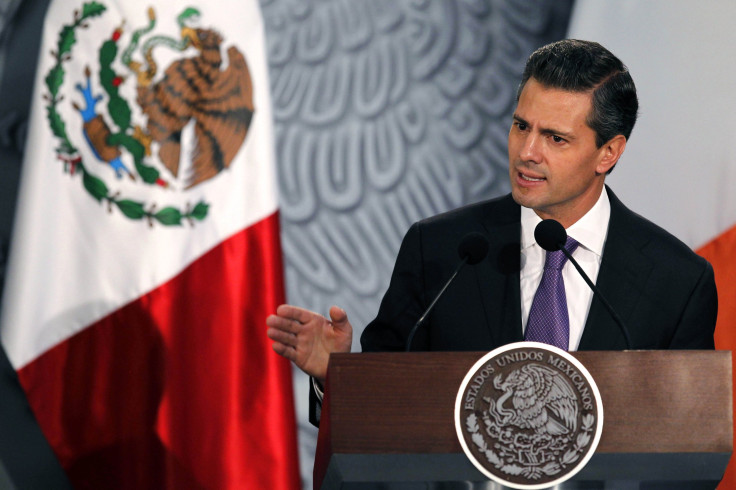
Mexico's Congress passed a tax reform bill on Thursday, a major plank of president Enrique Peña Nieto's agenda and one intended to give the government of Mexico, where almost half of the population lives in poverty, the ability to bring in revenue for health, infrastructure and social-welfare programs. But many independent analysts have derided the passed version of the bill as "watered-down" for decreases in the tax revenue it would generate for the government. According to Reuters, before the bill was presented by Peña Nieto's Institutional Revolutionary Party (PRI) last month, party officials said it would bring a quantity of taxes equal to 4 percent of the country's GDP by 2018, but that even before the Senate went to vote, the government admitted that that percentage would probably be more like 2.7 percent. Check out 5 things to know about the bill.
1. Tax reform is needed in Mexico.
Of all of the 34 member nations of the Organization for Economic Cooperation and Development (OECD) - a group of relatively wealthy, Western nations - Mexico brings in the least amount in tax revenue.
2. Even with a boost on income taxes for the rich, the wealthiest Mexicans still pay a lower percentage than the wealthiest Americans.
At least technically. The PRI sought out the help of leftist lawmakers in the PRD to get this provision passed. Whereas now, a guy like Carlos Slim - the telecommunications magnate who is the world's richest man - pays 30 percent of his income in taxes to the government, the reform will establish a sliding scale of increasingly higher rates ending at 35 percent for those who make more than 3 million pesos (or $233,000) per year.
In the United States, someone who brought in that sum would pay about 33 percent. But scales keep sliding as you travel farther up the pay scale - in the US, the top income tax bracket is 39.6%, for single people who make $400,000 a year or more or heads of households who make $425,000 per year or more, according to the Tax Foundation. In other words, in a country where about 45 percent of the population lives below the poverty line, Slim and other magnates will still pay less in income taxes than they would in the United States.
3. It boosts taxes along the US border.
The IVA tax - a value-added tax similar to a sales tax - will rise from 11 to 16 percent along the border.
4. There's a junk-food tax.
The government will tax from 5 to 8 percent sodas and foods with lots of calories and not much nutritional value.
5. It passed handily in the three-party Congress.
It garnered 299 votes in favor, 160 against and 1 abstaining.
© 2025 Latin Times. All rights reserved. Do not reproduce without permission.




